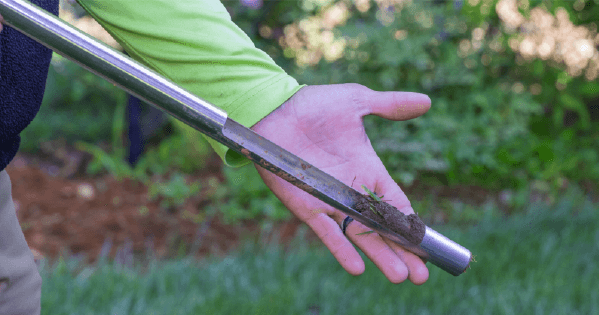Mowing Tips for a Healthy Lawn

Neglecting to mow the lawn on a weekly basis during the spring, summer and early fall is a big mistake for Georgia homeowners to make. Steady sunshine and an unpredictable amount of rainfall means grass will grow at a much faster pace than any other time of year. With this in mind, develop a weekly mowing pattern to keep grass healthy and resistant to disease. Weekly mowing also keeps grass at the right height to ward off pests that like to live in the shelter of tall grasses.
Is your lawn at risk?
If homeowners do not adopt a regular mowing schedule, their lawns are vulnerable to weakening. Weak grass attracts insects and different types of fungi that can take over. Weekly mowing provides the best defense against an infestation of pests and lawn diseases such as Brown Patch Fungus and Leaf Spot.
Longer turf grass provides a hiding place for common above ground pests such as armyworms, chinch bugs, beetles, ticks, mites, and mosquitos. Keeping grass at the right height for its type will create an undesirable habitat for pests, therefore they will move on and not make your home theirs.
To ensure your lawn stays healthy, mow it every week. A regular mowing schedule indeed strengthens the grass. When just the right amount of grass is clipped, roots retain the correct level of moisture. The healthier the grass, the less likely the chance of developing weeds. Weeds can take over a lawn very quickly, but vigorous growth will crowd out and physically smother smaller weeds cannot take over the lawn.
Why is mulching grass clippings a good practice?
Grass clippings are rich in nutrients, so leaving them on the lawn after mowing is a healthy habit for the soil. When you mulch the grass clippings back into the lawn, you are returning essential nitrogen, phosphorus, and potassium, which are essential for the healthy growth of plants. It’s a natural recycling process that strengthens the root system.
Mulching grass clippings also reduces thatch. Thatch is a layer of dead grass stems and roots that collects between the soil and the living grass. The thicker the thatch, the better the breeding ground for insect infestations and disease. Mulching grass clippings promotes faster decomposition of organic matter, which breaks down thatch more efficiently. Less thatch means better soil aeration, which also wards off disease.
When is my grass too long?
There are many reasons to avoid letting grass grow too long. Listed here are some of the most important:
- Blade Resistance: Longer grass means blades need to work harder to cut through, and several passes may need to be made.
- Uneven Cutting: Longer grass creates an uneven cut because blades grow at different speeds. Some may be shorter, and some may be longer, so a well-manicured look is more difficult to achieve.
- Increased Time and Energy: Longer grass takes more than one pass to cut, and it needs to be cut at a slower pace. Therefore, it takes more time, energy, and fuel to get the job done.
- Higher Costs: Professional lawn care services will charge higher fees to cut grass that is too long. They know the time it takes, the wear and tear on their equipment, and the amount of fuel or battery life they will get from their mower. Be prepared to pay a higher price.
Simply Green can help!
Simply Green Lawn Care Plus experts are committed to educating Georgia homeowners on the benefits of a weekly mowing schedule. Mowing the lawn every week reduces the risk of pest infestations and diseases from settling in. Weekly mowing is more cost-effective and efficient for the one mowing, and it is an easy way to keep your lawn strong and healthy. If you suspect problems with the health of your lawn, contact Simply Green to schedule an evaluation.
About Simply Green Lawn Care

Simply Green aims to provide the highest quality lawn care, mosquito control, and lawn pest control services to Georgia residents.
We are locally owned and operated which allows us to be accessible, attentive, and responsive for customers in Georgia.
Our well-trained team is easy to work with and determined to exceed expectations.
All our plant health care specialists are Georgia Department of Agriculture Certified and maintain their Category 24 applicators license.


